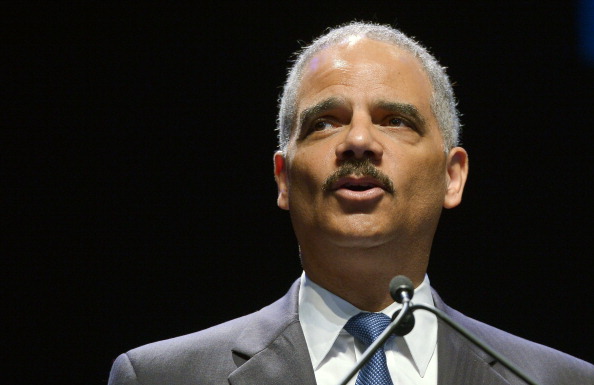
Ahead of an expected lawsuit from the House of Representatives, Attorney General Eric Holder defended President Obama’s use of executive power and said it was a fraction of what other Presidents have done. Speaking to TIME on Tuesday, Holder said Obama had used executive orders far less than Teddy Roosevelt, and said that the Justice department had approved all his orders before hand for legality.
“I was looking the other day just at a list of presidents and Teddy Roosevelt issued about 1,000 executive orders,” he said. “So in terms of magnitude this president has not used this authority nearly as much as his critics would say.”
Holder also addressed his ongoing review of administration immigration policies, including consideration of expanding protection from deportation to include not just unaccompanied minors but adult undocumented immigrants as well. Holder also said he believes that westerners traveling to Syria and Iraq, where they can come into contact with skilled bomb-makers from al Qaeda offshoots, represent a grave threat to U.S. national security.
The interview has been condensed and edited for space.
Has there been actual direct contact between western Jihadis and terrorist organizations in Syria and Iraq?
The short answer to that question is yes. We are seeing I would say an alarming rise in the number of American and European Union nationals who have been going to Syria to help extremist groups. I think it’s just a matter of time before we put Iraq in that same category. We have opened dozens of investigations into Americans who have been traveling there. At this point we have eight open cases in various stages of people who have traveled to Syria.
I would characterize it as a grave threat to our security. Every morning I start my day going over the threat assessment for the previous 24 hours over at the FBI, and increasingly the topic of individuals traveling from the United States to Syria and Iraq—Iraq is starting to crank up—that has become a real issue. We estimate there are about 7,000 foreign fighters in Syria, from the EU, North Africa, and some from the United States. They go there, they can become radicalized, and they can return home with the intent to commit violence. And they have the know-how to do it on potentially a mass scale.
Is that your greatest worry on the national security front?
Core al Qaeda has really been weakened, there’s no question about that. But these offshoots, even those organizations that have split from al Qaeda, are of great concern and the brew that is potentially in the mix there between these groups, getting together, sharing expertise, whether its Al Qaeda in the Arabian Peninsula and the expertise they possess with regard to the creation of bombs, marrying them up with other groups. It’s the combination of these offshoots plus these foreign fighters. Those are the things that really give me concern.
How much of your time do you have to spend worrying about, thinking about and addressing the pressure from the Hill to constrain the executive branch?
We’ll have to see. There’s a very tangible thing we’re going to potentially have to deal with, which is the lawsuit that I think the House is going to file at some point. And the Justice department will obviously be involved in that. But in terms of the use of executive action, the president has appropriately used executive authority as other presidents have. He’s used executive action, around 180 times, something like that. I was looking the other day just at a list of presidents and Teddy Roosevelt issued about 1,000 executive orders. So in terms of magnitude this president has not used this authority nearly as much as his critics would say. But when executive action is proposed it is something that is reviewed here by the appropriate components within the Justice department and a legal determination made that the President can act in that way.
Have you reviewed the issue of expanding the president’s powers to grant reprieve from deportation proceedings for a broader number of people, not just children?
I’d say we’re reviewing that. The president has asked me and Secretary Jeh Johnson from Homeland Security to look into a wide range of things. So I’d say that we are reviewing the specific one that you had mentioned, but we are more broadly looking at the whole immigration portfolio.
Do you take a position on the philosophical debate over the purpose of incarceration, whether it is for rehabilitation or for retribution?
The purpose of sentencing, there’s a variety of factors: deterrence, punishment, rehabilitation. That’s all a part of what a good sentence is all about. But when done well it tends to focus on looking at the individual. I was a judge for five years here in Washington, DC, and it’s a combination of art and science.
More Must-Reads from TIME
- L.A. Fires Show Reality of 1.5°C of Warming
- Behind the Scenes of The White Lotus Season Three
- How Trump 2.0 Is Already Sowing Confusion
- Bad Bunny On Heartbreak and New Album
- How to Get Better at Doing Things Alone
- We’re Lucky to Have Been Alive in the Age of David Lynch
- The Motivational Trick That Makes You Exercise Harder
- Column: All Those Presidential Pardons Give Mercy a Bad Name
Contact us at letters@time.com